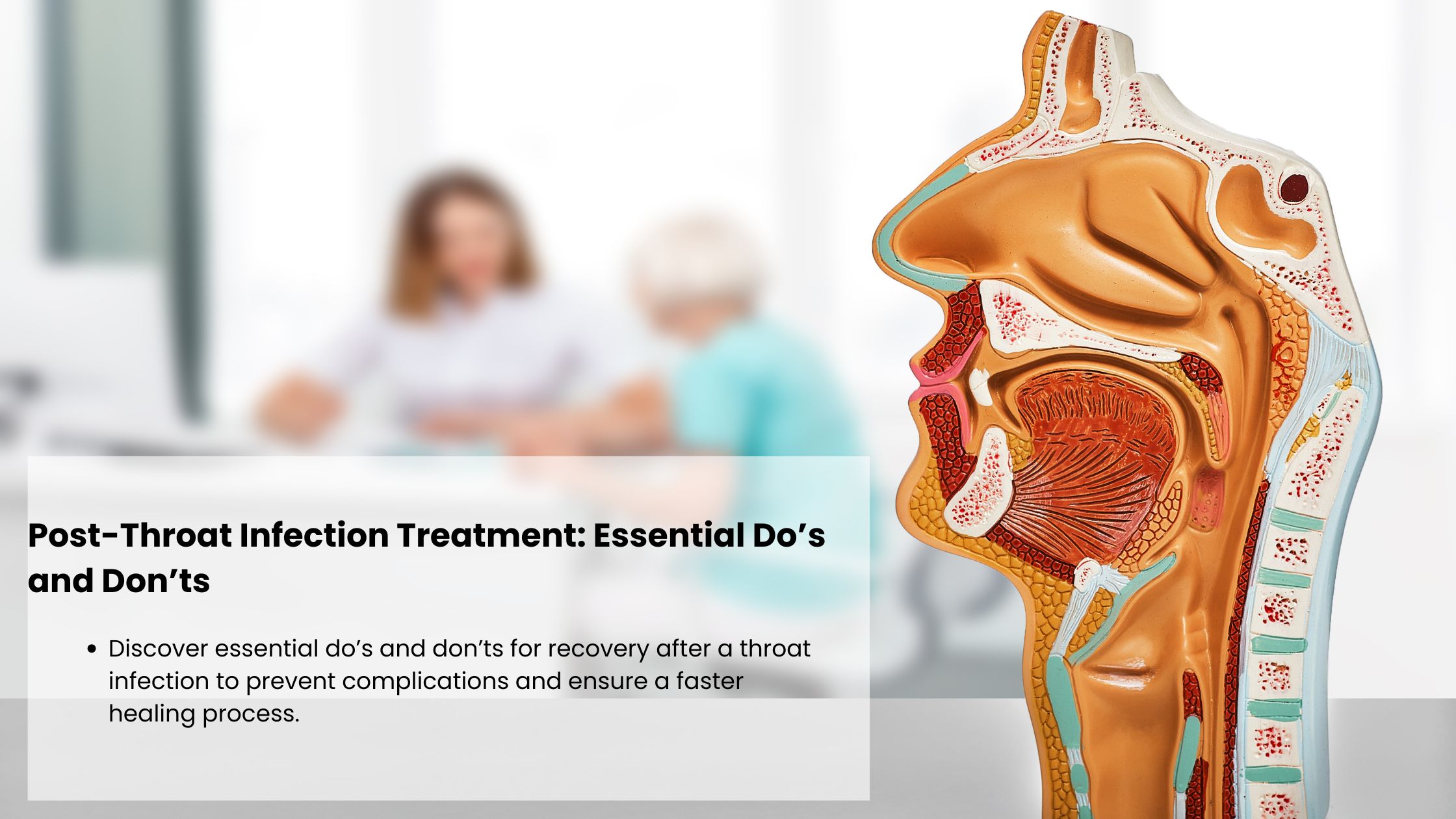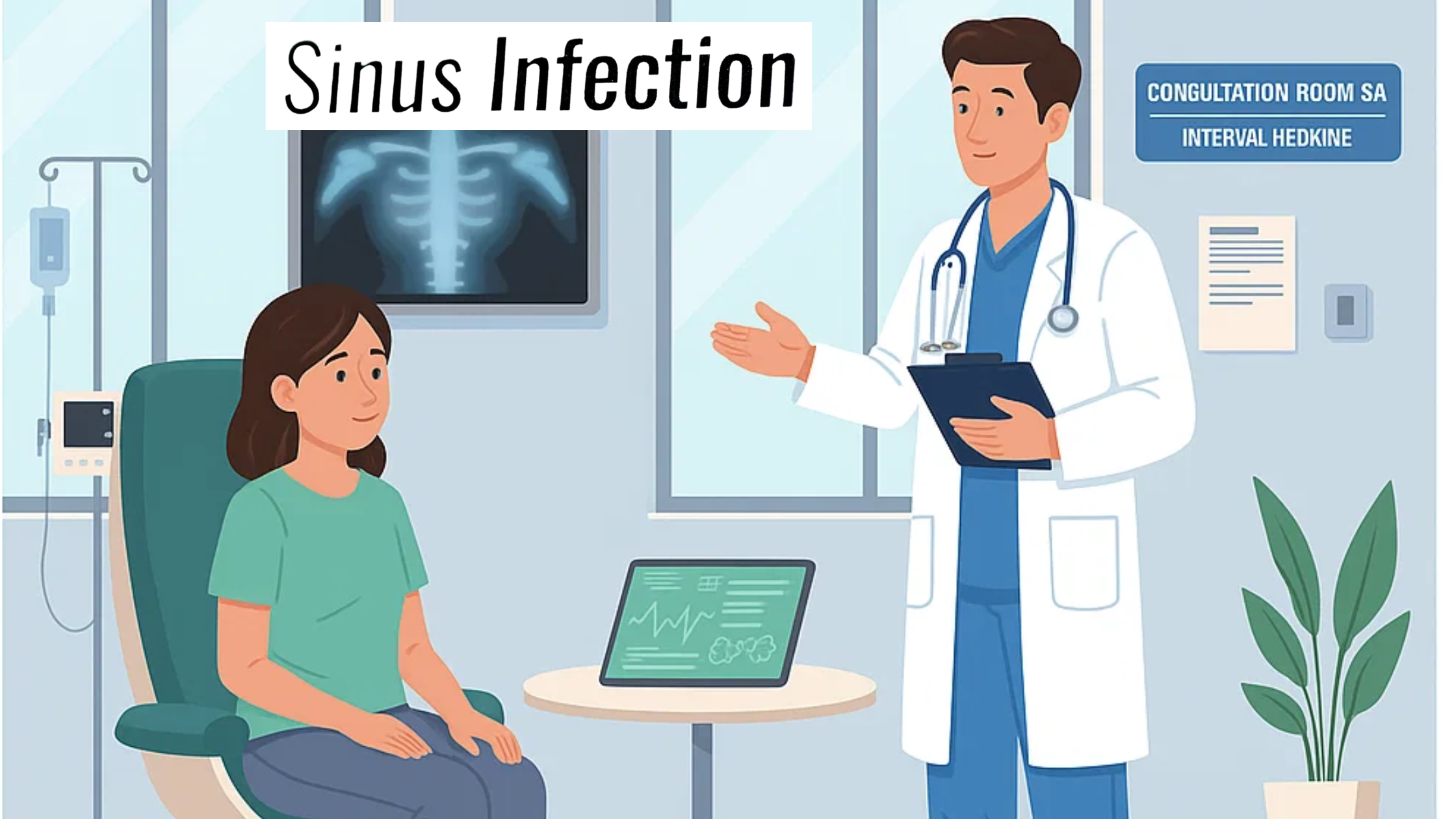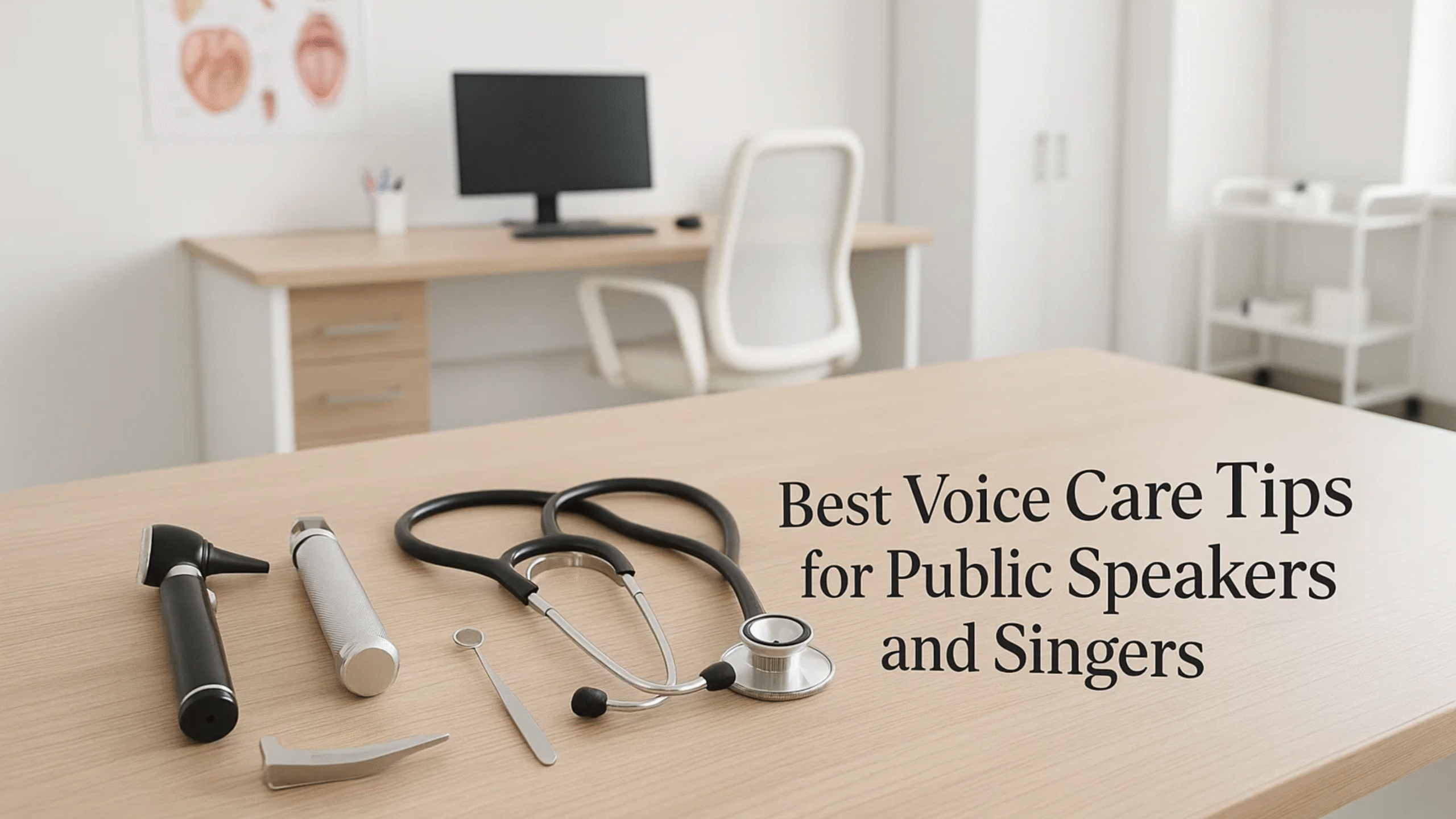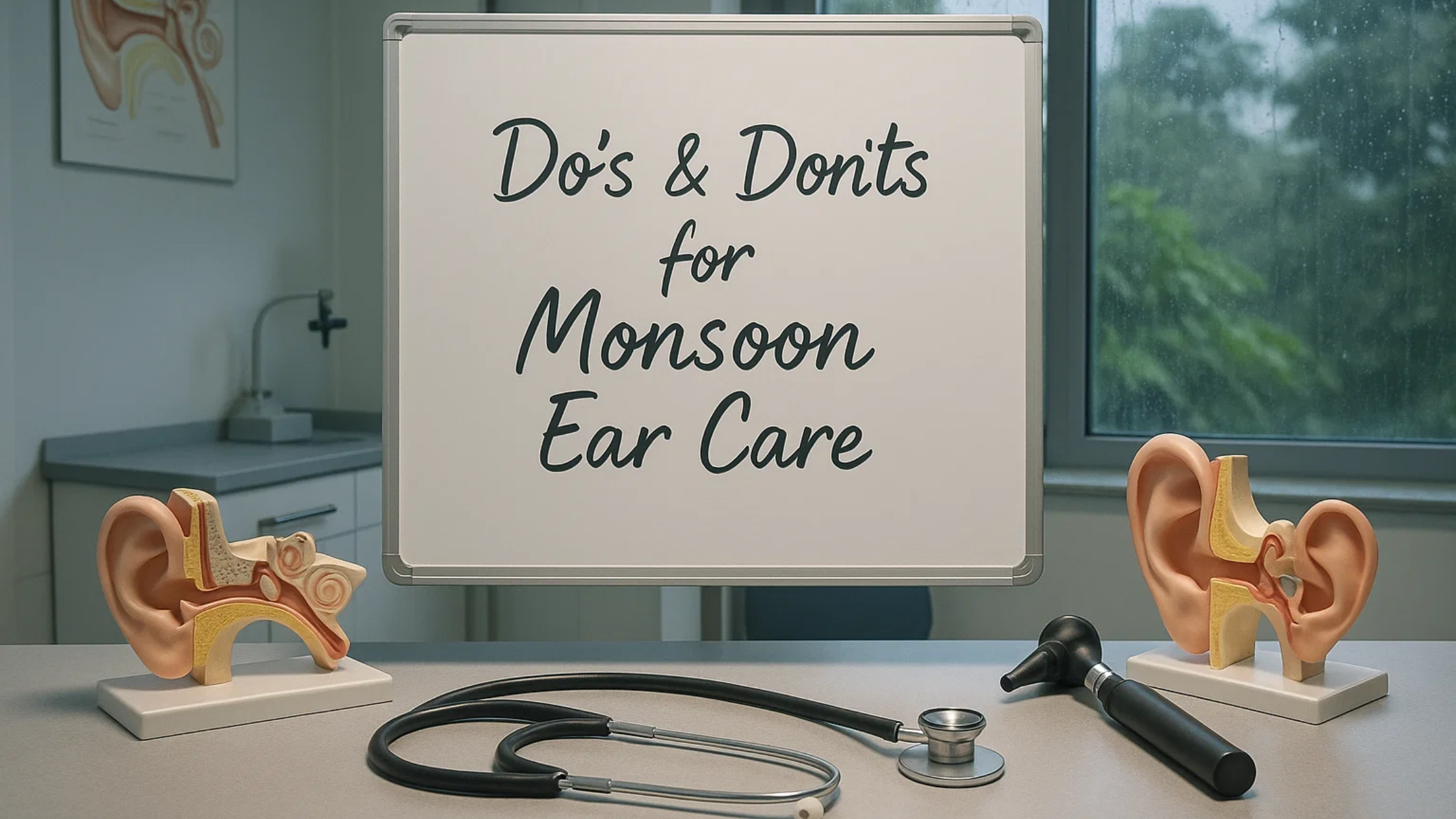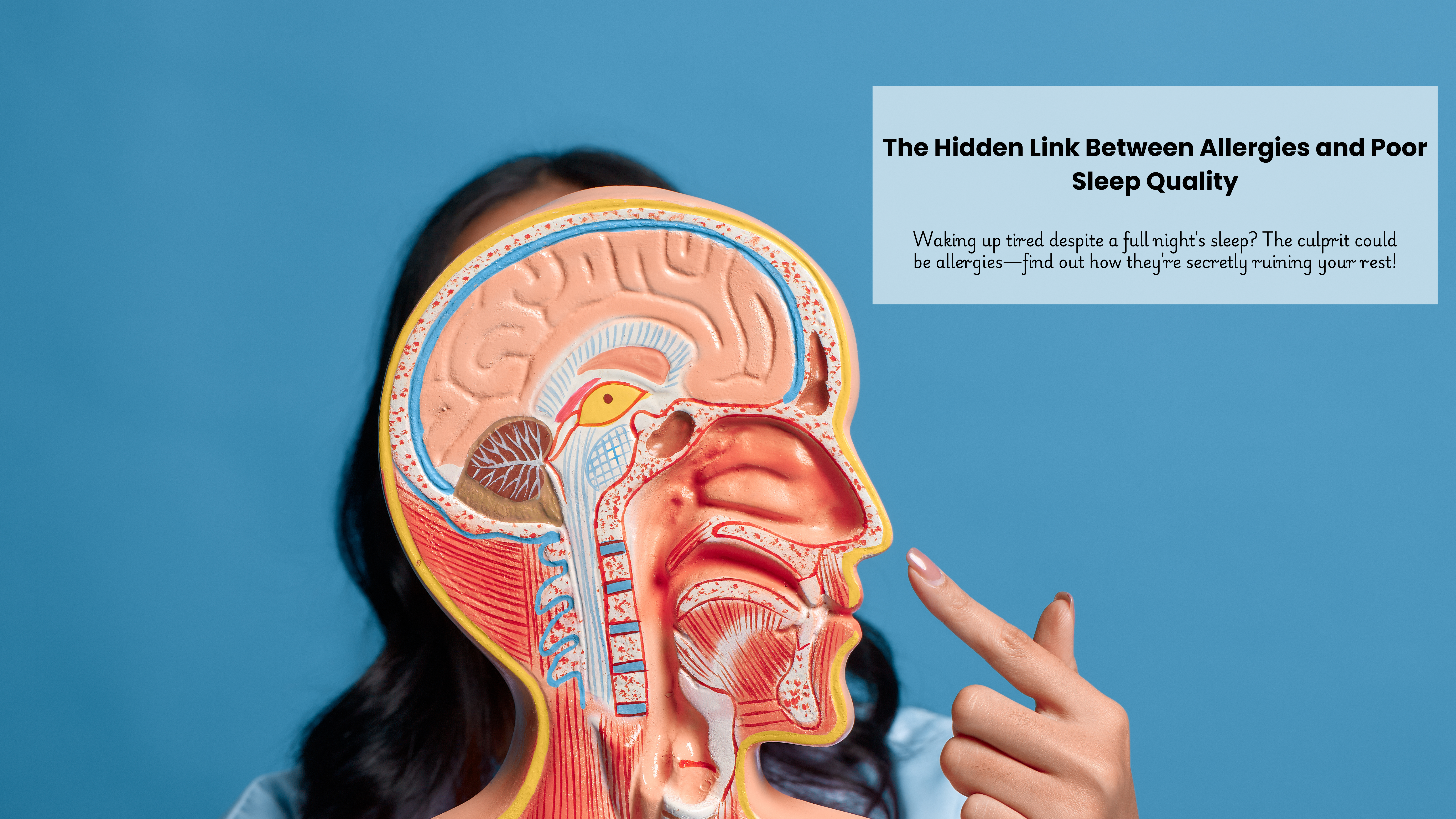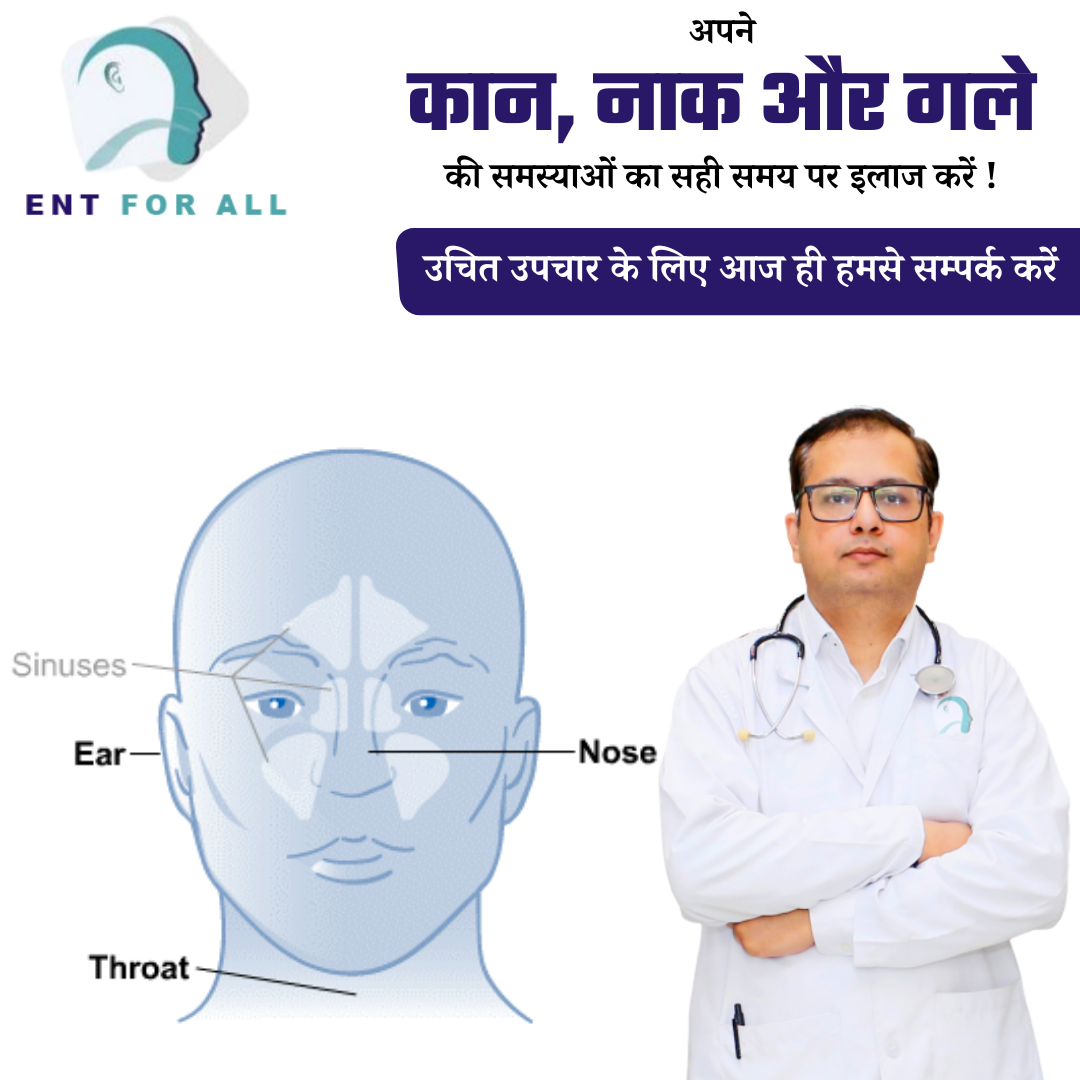Recovering from a throat infection requires proper care to prevent complications and promote healing. While antibiotics or home remedies may have helped relieve the symptoms, the post-infection phase is just as crucial in ensuring a full recovery. Ignoring essential aftercare can lead to prolonged irritation, recurrence of infection, or even chronic throat problems.
In this guide, we will discuss the essential do’s and don’ts for post-throat infection care, helping you heal faster and avoid further issues. Whether you’ve had a bacterial, viral, or fungal throat infection, these tips will help you regain comfort and protect your throat from future infections.
Understanding the Healing Process of a Throat Infection
Throat infections typically go through three stages of recovery:
- Inflammation Phase – The throat is swollen, red, and painful due to infection.
- Healing Begins – Symptoms start improving, but the throat may still feel dry and sensitive.
- Recovery and Strengthening – The throat gradually returns to normal, but care is needed to prevent irritation or reinfection.
Why Proper Aftercare is Important
During recovery, the throat lining is still delicate, and improper care can lead to lingering discomfort or reinfection. Factors like dehydration, overuse of the voice, and exposure to irritants can prolong the healing process. Following the right treatment steps can ensure a smooth and complete recovery.
The Do’s of Post-Throat Infection Treatment
Taking the right measures after a throat infection can significantly speed up healing and prevent complications. Here are some essential do’s to follow:
1. Stay Hydrated
Keeping the throat moist and lubricated is crucial for healing. Drink plenty of:
✔ Water to flush out toxins
✔ Herbal teas like chamomile or ginger for soothing relief
✔ Warm broths and soups to stay nourished without irritation
2. Use a Humidifier
Dry air can worsen throat irritation, so using a humidifier in your room can help keep the air moist and comfortable. This is especially helpful in winter months when indoor air tends to be drier.
3. Eat Soothing Foods
Soft foods reduce strain on the throat and promote healing. Opt for:
✔ Warm soups and porridge
✔ Mashed vegetables and soft fruits
✔ Honey with warm water for natural soothing
4. Rest Your Voice
Your vocal cords may still be inflamed, so avoid excessive talking or whispering, as this can strain the throat further. If needed, communicate through writing or texting to reduce vocal effort.
5. Follow Your Doctor’s Advice
If prescribed antibiotics or other medications, complete the full course as directed to prevent recurrence. Stopping medication early can cause bacteria to become resistant, leading to future complications.
6. Gargle with Salt Water
A simple saltwater gargle (½ teaspoon of salt in a glass of warm water) helps:
✔ Reduce inflammation
✔ Remove bacteria
✔ Soothe throat irritation
7. Consume Vitamin C
A strong immune system helps with faster recovery. Eating citrus fruits, strawberries, and leafy greens can boost Vitamin C intake, helping the body fight off infections more effectively.
The Don’ts of Post-Throat Infection Treatment
Just as there are things you should do, there are also habits to avoid that could slow down your recovery or cause reinfection.
1. Avoid Smoking and Secondhand Smoke
Cigarette smoke contains toxins that irritate the throat, causing further inflammation and slowing healing. Even passive smoking can trigger discomfort.
2. Steer Clear of Spicy or Acidic Foods
Foods like chili, citrus fruits, tomatoes, and vinegar-based dishes can cause a burning sensation and delay throat recovery. Stick to bland and soft foods until your throat is fully healed.
3. Don’t Overexert Yourself
Physical exhaustion weakens the immune system, making it harder to recover. Take adequate rest, avoid strenuous activities, and give your body time to heal.
4. Avoid Cold Drinks or Foods
Cold beverages and ice cream may feel soothing initially, but they can cause muscle constriction in the throat, leading to further discomfort. Instead, drink lukewarm water or herbal teas.
5. Don’t Self-Diagnose
Using over-the-counter medications without a doctor’s consultation can be risky. Some throat infections require specific treatments, and incorrect medication can worsen symptoms. Always seek medical advice before taking any new treatment.
6. Refrain from Sharing Personal Items
To prevent spreading bacteria or viruses, avoid sharing:
✔ Utensils and cups
✔ Towels or napkins
✔ Toothbrushes
Maintaining good hygiene reduces the risk of reinfection for you and those around you.
When to Seek Medical Help After a Throat Infection
Most throat infections heal within a week, but some symptoms may indicate a serious underlying condition. Seek medical attention if you experience:
| Symptom | Reason to See a Doctor |
|---|---|
| Persistent pain | If throat pain does not improve despite treatment. |
| Difficulty swallowing or breathing | Could indicate severe inflammation or an abscess. |
| High fever that won’t go away | Might signal a bacterial infection requiring antibiotics. |
| Swelling in the neck or jaw | Could be a sign of an advanced infection. |
| Pus or blood in saliva/mucus | Needs immediate medical evaluation. |
Ignoring these warning signs can lead to serious complications, including deep infections or long-term throat damage.
Conclusion
Caring for your throat after an infection is just as important as treating the infection itself. Staying hydrated, eating soothing foods, resting your voice, and avoiding irritants are key to ensuring a full recovery.
Following these essential do’s and don’ts will help your throat heal faster and prevent reinfection. If you notice persistent discomfort, breathing difficulties, or fever, don’t hesitate to seek medical help.
Take Charge of Your Throat Health!
📞 Book an appointment with ENT For All today for expert throat care and post-infection recovery guidance.
Follow us on Facebook: @entforall

